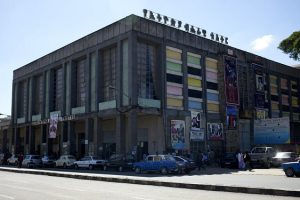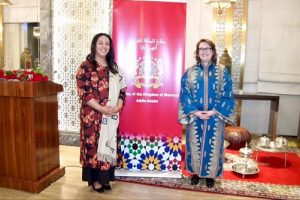BY MULUGETA GUDETA
According to some media pundits, the rise and growth of social media nowadays are increasingly creating both opportunities and perils to society at large. On balance, the opportunities outweigh the perils although the latter are becoming more dangerous to the life, stability and aspirations of people around the world. In Africa, social media is fast becoming the number one negative phenomenon to destabilize the traditions, cultures and peaceful coexistence of otherwise closely interconnected communities.
For that matter, all social media activities are not destructive to African societies. Yet, a few of them are causing disproportionately greater harm to them. According to the same media gurus, one of the problems is the underdevelopment of media culture and the fragility of democratic ethos.
The absence of media professionalism in Ethiopia has always proved a serious stumbling block on the road to ethical journalism. Since its advent back in the 1040s, the media in Ethiopia have suffered and still suffering from lack of professionalism for many reasons. One of the reasons is the absence of well-trained or educated journalists in the field. Until very recently or before the establishment of the department journalism under Addis Ababa University, there was no local institution with the mandate to produce professional or ethical journalists in the country.
True, there were a few individuals who returned from Western countries, mainly from the United States and Britain after completing studies in journalism as a profession. These people formed the first batches of trainees in modern journalism that subsequently played influential roles in the print as well as broadcast media. During the three decades before the Ethiopian revolution of 1974, these professionals shaped and promote a media culture, particularly in print media, based on the main tenets of ethical journalism even though they were hired by the government or worked as a group of highly competent writers news stories or featured articles.
Historically, media competence and professionalism started to decline after the 1974 revolution when student activists from the University started to play the role of informal sources of public information through their various on-campus political publications that were also circulating outside the walls of University campuses. The authors of these publications were educated youngsters who had little knowledge of public information and less media ethics and responsibilities. Their publications were not newspapers per se, but leaflets and fliers focusing on the burning issues of the time meant to agitate the public and mobilize it for action.
During the years of military government in Ethiopia between 1974 and 1991, the media continued to be exclusively owned and controlled by the government. Only publications carrying information lauding the achievements of the revolution and the revolutionary government were allowed to circulate. Most of the writers, editors and broadcasters who worked in the state media had no basic training in media culture or media ethics and reflected only the official views of the government or the then ruling single party.
The end of military rule in 1991 and the establishment of the EPRDF-ruled government had created some hope for media diversity and tolerance. However, such a hope proved short-lived as the Press Law narrowed the boundaries of freedom although it allowed the emergence of a private press in the history of the country. The private press flourished as a consequence without giving sufficient attention to the training and professionalism of the journalists working for private newspapers and magazines.
Amateurism was therefore the basic characteristic of journalism in the government as well as the private press. Media ethics was disregarded or completely ignored. Politics took the upper hand and shaped the views and modus operandi of the journalists. Ethical journalism was either unknown or overlooked and amateurism set the standards of print as well as broadcast journalism. This trend has continued and even becomes worse with the advent of social media platforms that turned anyone with a computer and an internet connection into a “journalist”. No doubt that the development of media technology has improved the pace and reach of the social media.
Yet, it has done this at the cost of infringement of the basic principles of media ethics such as truthfulness, objectivity, impartiality and plausibility in news reporting or feature writing and broadcasting. Ethical journalism thus continues to be the soft underbelly of Ethiopian journalism whose infringement of professionalism has become one of its distinctive features as a result of the subversion of social media that do not respect any laws or moral standards and are conducted by blind emotion, partisanship, not by reason, national interests or objectivity. Public interests are therefore sacrificed on the altars of sensationalism and the search for financial gains at the cost of information, communication or knowledge.
However, it is not still too late for Ethiopian journalism, both private and official, to evolve in the direction of ethical journalism if they aspire at all to serve as public watchdogs or promote freedom and democracy. Ethical journalism involves, among other things, avoidance by journalists a conflict of interest in their profession.
Conflict of interest occurs when journalists try to live up to commitments or obligations that violate their standards of professional behavior or whenever they try to accommodate their political preferences or accommodate their egos and personal interests in an environment of divided loyalty.
The strong symbiosis between politics and journalism in Ethiopia was, as we saw above, and continues to be, one of the threats or challenges that have been leading journalists to behave both as politicians and newsmen; something that contradicted the basic principles of impartiality or undivided loyalty to the profession.
Through time, it would definitely be in the interest of the profession for journalists to separate these two distinctive roles. It is bound to require more time and maturity on their part to de-politicize their profession and make it free from the pitfalls of fierce partisan conflicts.
In this time of growing social media influences, journalists cannot act in the way of politicians without compromising the core ethical principles of their profession. Someone may be an athlete and a politician at the same time but one cannot play the role of journalist and politician at the same time although journalists might have political opinions of their own. They should however take care not to color their journalistic work with political opinions in the course of their news reporting in particular as it is often the case in these times of growing social media influences that are often contrary to national interests.
In the recent past, most journalists of the private press operated outside the direct influence of politicians or parties although some of them might have strong links to the latter. The convergence of opinions between newspaper editors and politicians was largely a reflection of the hostile attitude some of the former Derg party cadres maintained and spread after they assumed key positions in the nascent private publishing business.
This was a phenomenon common to most post-communist societies in Eastern Europe where former communist party cadres found themselves in a position where they could use their money and connections in the old unreformed communist bureaucracy to promote their businesses and make money in the process.
The other quality required by ethical journalism is competence. Journalists working both in the government and the private press need to raise their levels of knowledge and skills if they aspire to serve the public, the truth, freedom or democracy in a better and more effective way.
The prevailing tendency in Ethiopian journalism is the false sense of competence and achievement bordering on arrogance that prevailed among many journalists of both the government and the private press. As a consequence of this, many of them failed to look at their activities rather critically or strive to make serious improvements.
There was also an acute lack of striving for better professional standards. The prevalence of an exaggerated sense of achievement even among the relatively more experienced journalists had prevented ethical journalism from becoming a reality. Competence or lack of it, may be the number one ethical problem in the field.
Journalists cannot obviously make any impact on their society or the way it is governed unless they do away with their sense of false pride and strive to learn, learn and learn. Journalists are not obviously saints who do not commit professional sins. They are ordinary mortals and in a country with complex political and professional challenges and with so little experience in professional journalism, they are expected to sin more often than not.
Journalists should nevertheless have the courage to face their own shortcomings or their professional incompetence and display equal determination to improve their skills and knowledge of their profession. Journalistic ethics thrives on quality and not on mediocrity.
One of the biggest challenges facing Ethiopian journalists today is also winning respect and distinction from the public and if possible from the government through ethical and quality work. These are serious times when journalists need to learn and relearn the tools of their trade in the context of changing political environments. As a case in point, terrorism is increasingly becoming difficult not only to contain but also to report about. Therefore, journalists need to balance objective reporting and national interests.
As one critic noted, “Some critics suggested that the media might avoid excesses by delaying reports on terrorist attacks. Journalists, with few exceptions, argued that the public had a right to know what was happening and that to delay or black out reports could lead to wild rumors and panic…some news organizations adopted formal guidelines calling for full coverage of the news but for responsible restraint to avoid playing into the hands of terrorists.”
The speedy growth of social media might be irresistible from the technological and economic point of view. Yet, the destructive impacts of negative social media activities should be contained by laws that would undercut their influences and discourage their subversion against society. Many African societies are being rocked by conflicts and wars that may not be started through social media but are aggravated through the so-called political activists bent on misinforming, misleading and messing up their lives.
For African journalists operating anywhere, the major task is to preserve traditional media ethics and fight tooth and nails against amateurism. mediocrity, irresponsibility verging on media sadism. Professional should therefore be defended against the amateurish, ignorant and sadistic activities of all those bent to destroy communities, societies or national entities by spreading falsehood, baseless rumors and character assassinations and hate speech
The Ethiopian Herald 20 August 2022





